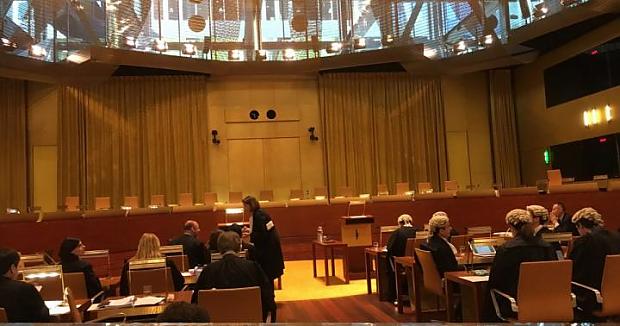EU Court rules trade treaties must be approved by member states
EU Court rules trade treaties must be approved by member states

National and regional parliaments must approve free trade treaties before they can definitively enter into force. That is the gist of the position taken by the European Court of Justice (ECJ), the highest European Union court, which the European Commission had asked for clarification. What this means is that numerous comprehensive treaties negotiated by the Commission over recent years will now have to be presented to thirty-eight parliaments throughout the EU, giving the member states more power to halt controversial agreements.
 SP Euro-MP Anne-Marie Mineur, who was present when the judgment was announced this morning, says she was delighted by the ruling. “The European Commission is always working to get more power, even when it concerns matters which are clearly meeting resistance from the public,” she explains. “We saw that with TTIP and CETA, which encountered ever more opposition. Last week the Commission was ticked off by another EU court for sidelining the Stop TTIP movement’s three-and-a-half million signature Citizen’s Initiative. Such treaties must now be debated by the parliaments which are closest to the people, which is a little more democratic.”
SP Euro-MP Anne-Marie Mineur, who was present when the judgment was announced this morning, says she was delighted by the ruling. “The European Commission is always working to get more power, even when it concerns matters which are clearly meeting resistance from the public,” she explains. “We saw that with TTIP and CETA, which encountered ever more opposition. Last week the Commission was ticked off by another EU court for sidelining the Stop TTIP movement’s three-and-a-half million signature Citizen’s Initiative. Such treaties must now be debated by the parliaments which are closest to the people, which is a little more democratic.”
Mineur sees the ruling as a further reprimand for the European Commission, and hopes that this will serve to get them to build support for their decisions. That does not, however, seem to be how they read it themselves.” It appears that the Commission intends to use this judgment to push things and find the limits of what they can do in order to conclude as many treaties as possible without consulting national parliaments,” she says. “It’s appalling that public support seems to be of no interest to this Commission.”
